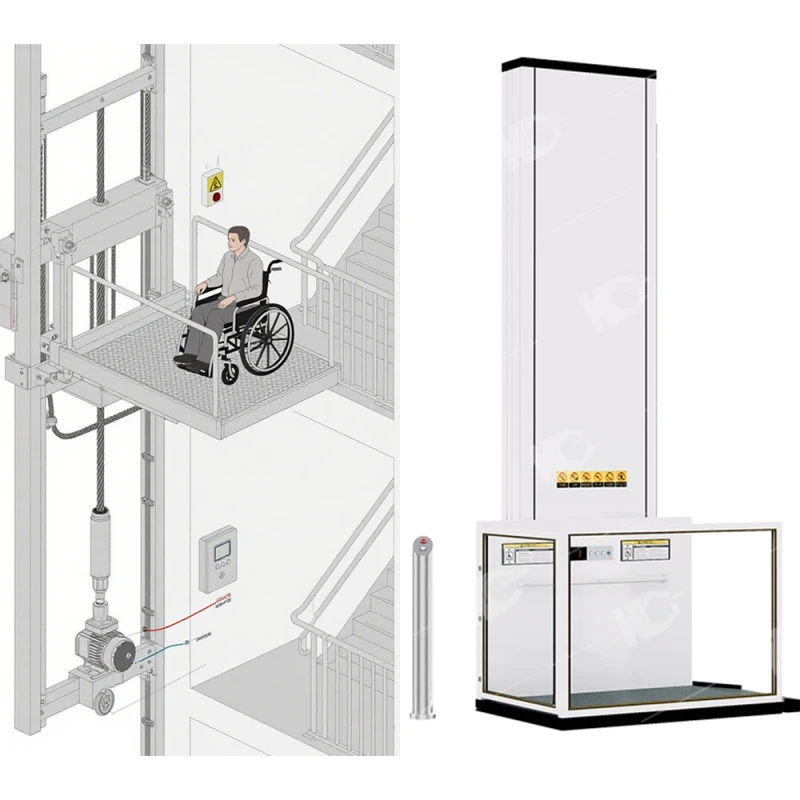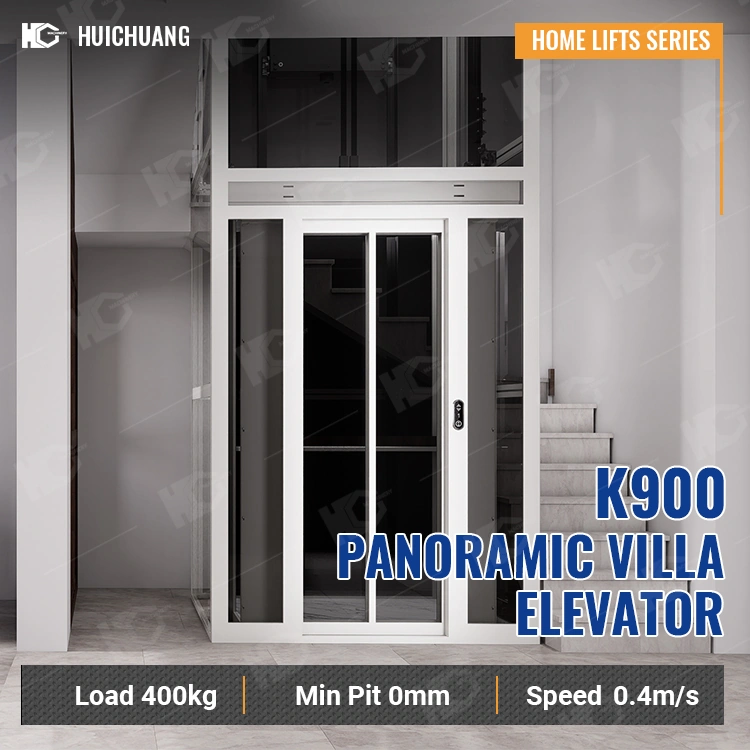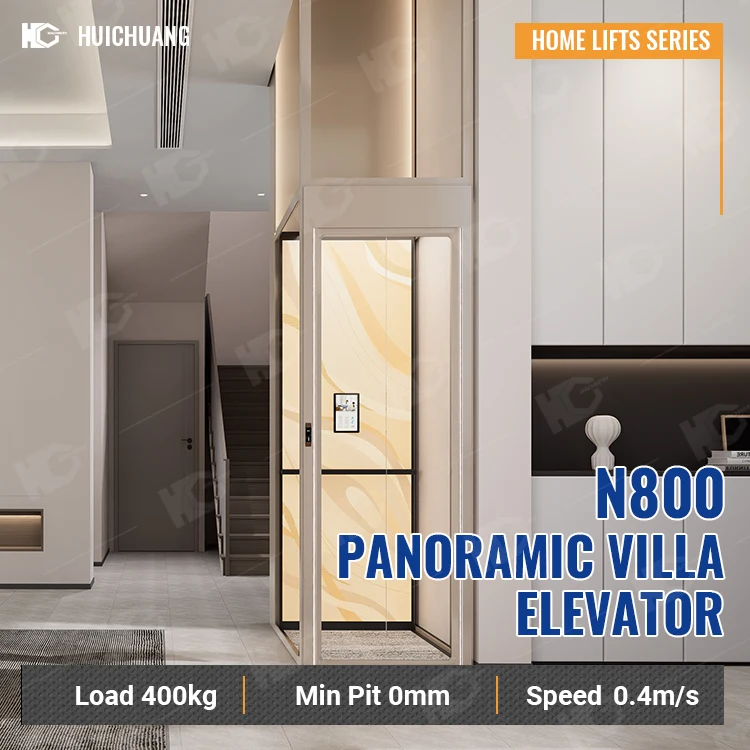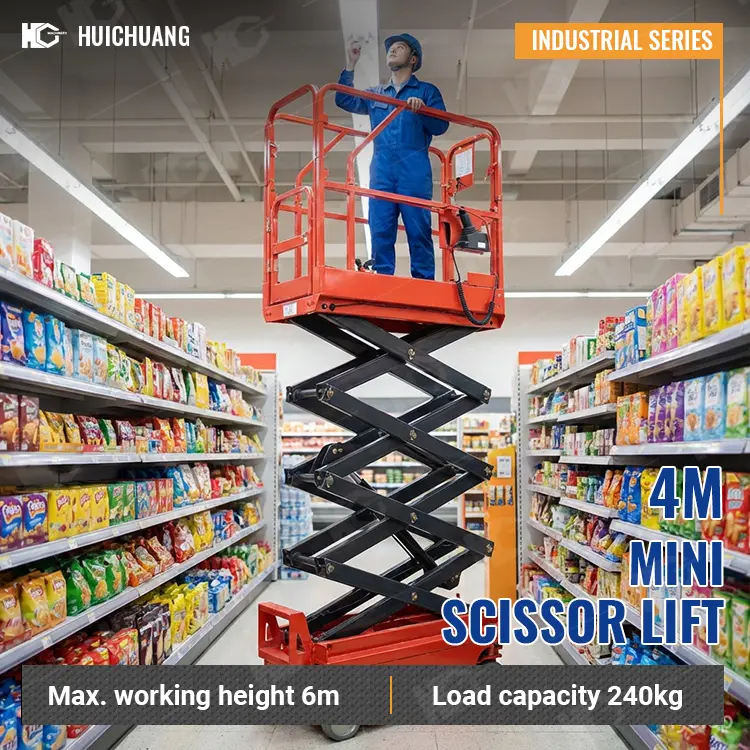Featuring Huichuang Lift—Pioneering Safe, Accessible Lifting Solutions
When you think about accessibility in modern society, ramps, automatic doors, and elevators probably come to mind. But there’s one piece of equipment that often operates behind the scenes, quietly transforming lives: the wheelchair lift. These mechanical marvels make vertical mobility possible for millions of people who use wheelchairs or mobility aids, especially in places where elevators aren’t feasible.
But have you ever wondered—how exactly does a wheelchair lift work? Is it all hydraulics and buttons, or is there more under the surface? Today, we’ll peel back the layers, explore the engineering, present some compelling market data, and introduce how Huichuang Lift, a leader in hydraulic lifting platforms, contributes to global accessibility.
What is a Wheelchair Lift?
Let’s start with the basics. A wheelchair lift—sometimes called a platform lift or vertical platform lift (VPL)—is a mechanical device designed to raise and lower individuals in wheelchairs between different floor levels, steps, or vehicle heights.
They come in various shapes, sizes, and technical configurations. But at the core, they all serve one mission: removing vertical barriers and making environments universally accessible.
Wheelchair lifts are used in:
Private homes
Public buildings
Schools and universities
Vehicles (buses, vans)
Hospitals and care facilities
In some cases, they are life-changing—not just convenient.
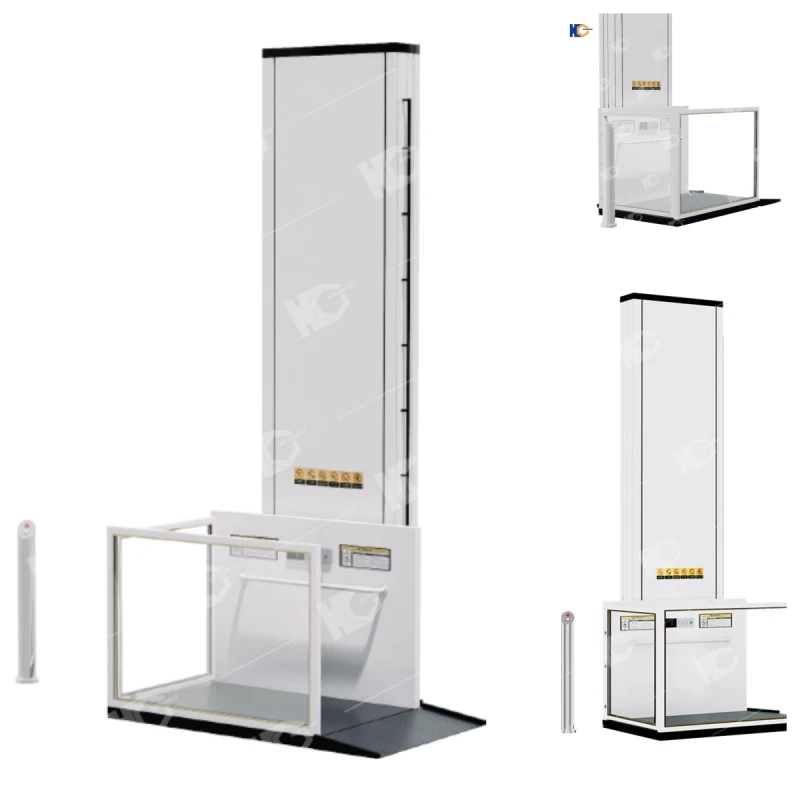
Our wheelchair lifts/accessible elevators are designed to help wheelchair users get up and down between floors, steps or vehicle heights.
The Basic Working Principle: How Does It Operate?
At its heart, a wheelchair lift operates through a platform, a lifting mechanism (hydraulic, electric screw, or belt-driven), and a control system.
Here’s a simplified breakdown of how most stationary wheelchair lifts function:
| Component | Function |
|---|---|
| Platform | Flat surface where the wheelchair user positions themselves. |
| Guard Rails/Safety Gates | Prevent accidental falls during operation. |
| Drive System | Hydraulic pump, motor, or screw mechanism lifts the platform. |
| Control Panel | Allows users or operators to control lift movement. |
| Sensors & Safety Switches | Detect obstacles, ensure safe operation, prevent misuse. |
For example, at Huichuang Lift, headquartered in Jinan—the famous “Hometown of Hydraulic Lifting Platforms”—we’ve engineered our wheelchair lifts with advanced hydraulic systems to deliver smooth, stable, and safe vertical travel.
But not all lifts use hydraulics. Electric screw lifts use a rotating threaded shaft, while belt-driven models offer a compact alternative for certain architectural spaces.
Hydraulic Wheelchair Lifts: Inside the Technology
Hydraulic wheelchair lifts are particularly favored for their:
Smooth, quiet movement
High weight capacity
Reliability in residential and commercial settings
Here’s how they work in a nutshell:
A hydraulic pump pushes fluid into a cylinder.
This pressurized fluid moves a piston, which lifts the platform.
Releasing pressure allows controlled descent.
Safety valves and limit switches prevent over-travel or sudden drops.
At Huichuang Lift, we specialize in this technology, combining precise manufacturing with rigorous quality control to ensure every lift exceeds international standards like CE, ISO, and ASME A17.1 certifications.
Interestingly, hydraulic systems can be surprisingly energy-efficient—gravity assists the descent, reducing power consumption.
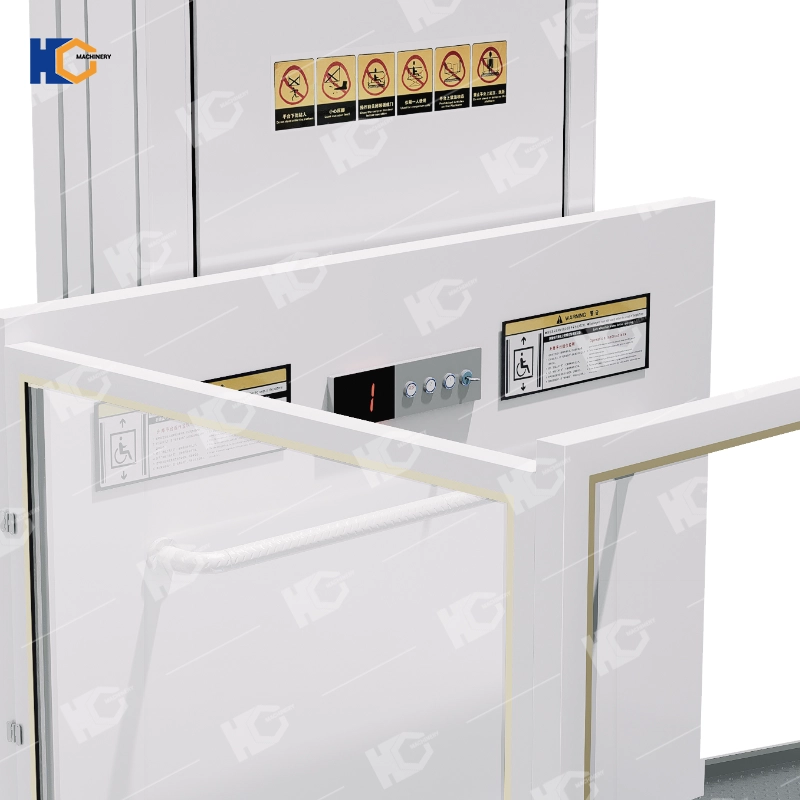
Barrier-free elevator operating panel
Electric Screw & Belt-Driven Systems: Alternative Technologies
While hydraulics reign supreme in many cases, electric screw-driven lifts are ideal for compact spaces or locations where hydraulic fluid maintenance isn’t preferred. These use:
A motor turning a threaded shaft
A nut attached to the platform moves up or down the shaft
Precise, gear-controlled movement ensures safety
Belt-driven models, on the other hand, rely on reinforced belts and pulleys, often hidden within sleek, architectural designs. Perfect for indoor residential use where aesthetics meet functionality.
It’s about matching technology to user needs, building layout, and budget.
Real-World Application Examples
Consider these scenarios:
Public Schools: A wheelchair lift bridges the stage area, allowing students of all abilities to participate in performances.
Private Homes: Home elevators from Huichuang Lift, customized with platform accessibility features, enable elderly or disabled residents to safely navigate multi-level homes.
Commercial Buildings: A telescopic boom lift with integrated wheelchair access improves both vertical reach and inclusivity.
Each case reflects our mission at Huichuang: hassle-free lifting experiences, building accessibility, and more possibilities for users.
Safety Features: Beyond the Basics
Modern wheelchair lifts include sophisticated safety mechanisms, including:
| Feature | Purpose |
|---|---|
| Emergency Stop Button | Halts lift movement instantly in an emergency. |
| Anti-slip Platform Surface | Prevents wheelchairs from sliding. |
| Automatic Folding Ramp | Eases entry/exit, folds up during operation. |
| Overload Protection | Disables lift if weight exceeds safe limits. |
| Battery Backup | Ensures operation during power outages. |
At Huichuang Lift, safety is non-negotiable. Our designs undergo stringent testing, exceeding not only national but also international performance benchmarks.
Market Outlook: Global Demand for Accessibility Solutions
The global wheelchair lift market is growing rapidly, driven by:
Aging populations
Increased disability awareness
Stricter accessibility regulations
Urbanization and inclusive infrastructure trends
Table: Projected Global Wheelchair Lift Market Growth
| Year | Market Size (USD Billion) | Annual Growth Rate |
|---|---|---|
| 2022 | 1.2 | — |
| 2024 | 1.6 | ~15% CAGR |
| 2027 | 2.3 | Sustained growth |
| 2030 | 3.1 | Driven by urban projects |
(Data compiled from industry reports and market research sources)
Interestingly, Asia-Pacific is emerging as a key region due to infrastructural modernization and improved living standards—an area where Huichuang Lift, based in China, holds a strategic advantage.
Why Choose Huichuang Lift? A Brand You Can Rely On
Let’s be candid—there’s no shortage of lift manufacturers globally. But here’s why Jinan Huichuang Machinery Manufacturing Co., Ltd., known as Huichuang Lift, continues to earn industry respect:
Located in Jinan—China’s hydraulic lift manufacturing hub
Over 200 skilled staff, advanced workshops, and modern showrooms
Independent R&D for both hydraulic work lifts and home elevators
Strict adherence to CE, ISO, ASME A17.1 Strong presence in North America, South America, Europe, and Southeast Asia
Customized OEM services for unique architectural or user needs
Commitment to cost-effectiveness without compromising quality
We’re not here to sell gimmicks; we’re here to solve mobility challenges and promote dignity through smart, safe, and reliable lifting solutions.
Challenges & Future Innovations in Wheelchair Lift Design
Even with impressive advances, the wheelchair lift industry faces evolving demands:
Space constraints in older buildings
Enhanced energy efficiency expectations
Better integration with smart home systems
Improved design aesthetics for public spaces
At Huichuang Lift, our R&D teams constantly push boundaries, exploring:
Eco-friendly hydraulic fluids
AI-driven safety diagnostics
Sleek, minimalist lift designs
Remote monitoring for maintenance efficiency
It’s not just about moving platforms—it’s about moving lives upward, both literally and metaphorically.
Conclusion: Small Device, Huge Impact
It’s easy to overlook a wheelchair lift—until you need one. But behind that unassuming platform lies a sophisticated interplay of engineering, safety, and social responsibility.
From hydraulic cylinders quietly raising users to electric motors precisely guiding movement, wheelchair lifts dismantle architectural barriers. They turn stairs into invitations, elevate opportunities, and embody inclusivity.
And at the forefront of this mission stands Huichuang Lift, proudly rooted in Jinan, delivering world-class solutions with a personal touch.
Whether you're an architect, facility manager, or homeowner—if you're considering a wheelchair lift, remember: it's not just about machinery. It's about creating spaces where everyone belongs.
